October 29, 2009 Minutes
advertisement
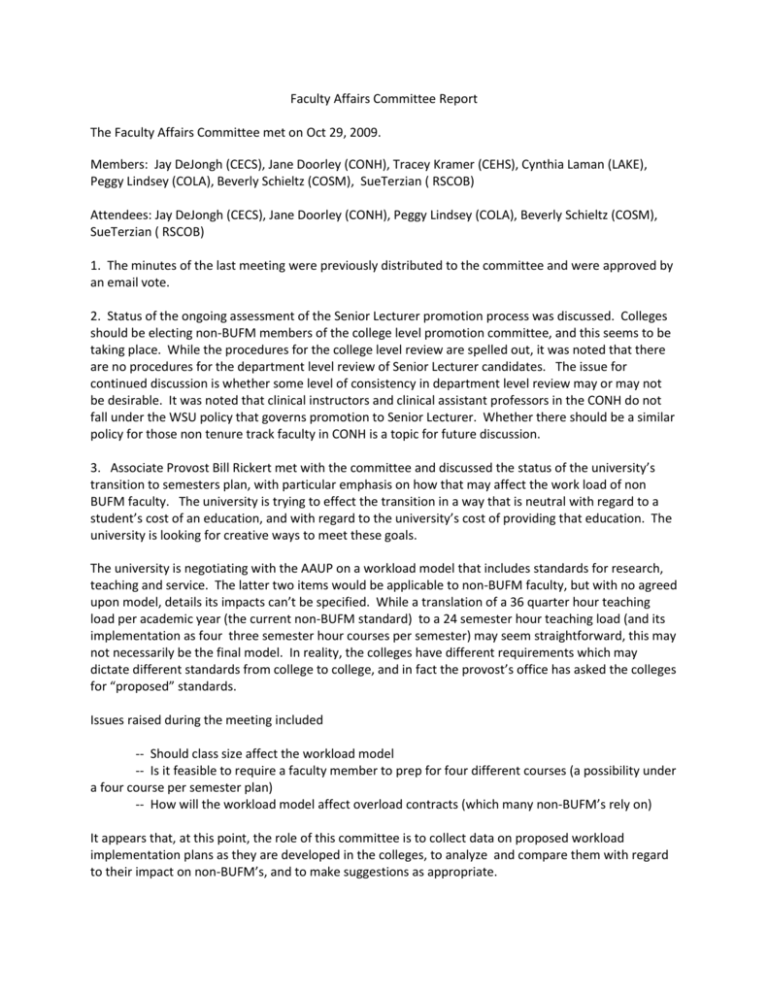
Faculty Affairs Committee Report The Faculty Affairs Committee met on Oct 29, 2009. Members: Jay DeJongh (CECS), Jane Doorley (CONH), Tracey Kramer (CEHS), Cynthia Laman (LAKE), Peggy Lindsey (COLA), Beverly Schieltz (COSM), SueTerzian ( RSCOB) Attendees: Jay DeJongh (CECS), Jane Doorley (CONH), Peggy Lindsey (COLA), Beverly Schieltz (COSM), SueTerzian ( RSCOB) 1. The minutes of the last meeting were previously distributed to the committee and were approved by an email vote. 2. Status of the ongoing assessment of the Senior Lecturer promotion process was discussed. Colleges should be electing non-BUFM members of the college level promotion committee, and this seems to be taking place. While the procedures for the college level review are spelled out, it was noted that there are no procedures for the department level review of Senior Lecturer candidates. The issue for continued discussion is whether some level of consistency in department level review may or may not be desirable. It was noted that clinical instructors and clinical assistant professors in the CONH do not fall under the WSU policy that governs promotion to Senior Lecturer. Whether there should be a similar policy for those non tenure track faculty in CONH is a topic for future discussion. 3. Associate Provost Bill Rickert met with the committee and discussed the status of the university’s transition to semesters plan, with particular emphasis on how that may affect the work load of non BUFM faculty. The university is trying to effect the transition in a way that is neutral with regard to a student’s cost of an education, and with regard to the university’s cost of providing that education. The university is looking for creative ways to meet these goals. The university is negotiating with the AAUP on a workload model that includes standards for research, teaching and service. The latter two items would be applicable to non-BUFM faculty, but with no agreed upon model, details its impacts can’t be specified. While a translation of a 36 quarter hour teaching load per academic year (the current non-BUFM standard) to a 24 semester hour teaching load (and its implementation as four three semester hour courses per semester) may seem straightforward, this may not necessarily be the final model. In reality, the colleges have different requirements which may dictate different standards from college to college, and in fact the provost’s office has asked the colleges for “proposed” standards. Issues raised during the meeting included -- Should class size affect the workload model -- Is it feasible to require a faculty member to prep for four different courses (a possibility under a four course per semester plan) -- How will the workload model affect overload contracts (which many non-BUFM’s rely on) It appears that, at this point, the role of this committee is to collect data on proposed workload implementation plans as they are developed in the colleges, to analyze and compare them with regard to their impact on non-BUFM’s, and to make suggestions as appropriate. Ultimately a workload policy will be voted on by the Faculty Senate and this committee needs to be positioned to provide input on that policy. However, since the policy does not have to be officially in place before early 2012 (in time to schedule for fall 2012), when such a Faculty Senate vote would take place is unknown. 4. The committee reviewed university policy 4210, Compensation of Employees not Represented by Collective Bargaining, and had no comments to make on the policy. 5. The next meeting will be held at the start of the winter quarter, time and date TBD The chair will email members shortly to get their winter quarter schedules so that a meeting time can be arranged.
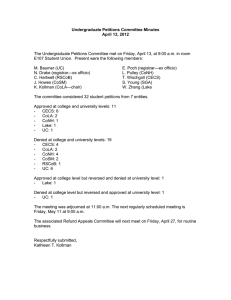
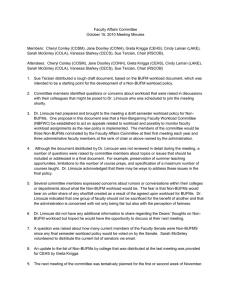


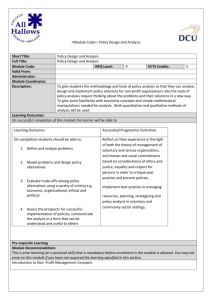
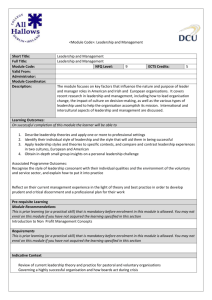

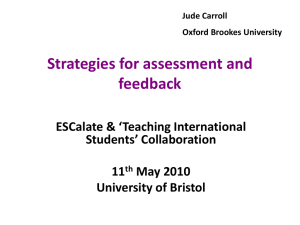

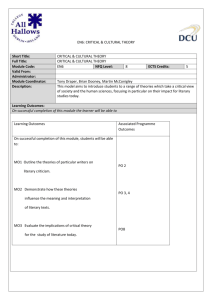
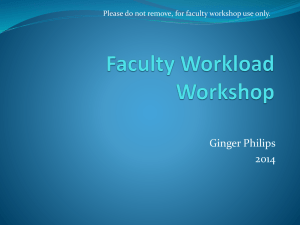
![Guidelines for Academic Workload Allocation[1]](http://s3.studylib.net/store/data/007357775_1-c08378375a61bf04d5de327b7ce434b5-300x300.png)